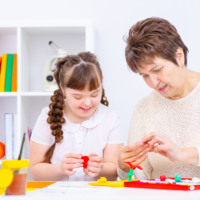Research digest
-

The costs of childhood ADHD extend into early adulthood
Earlier this year, Ebba Du Rietz and colleagues reported their findings from a large-scale, register-based study of the impact of childhood ADHD on healthcare use and costs in early adulthood.
Read more -

Depressed young people have lower vitamin B12 and vitamin D levels than their peers
Researchers in Turkey have studied serum folate, vitamin B12, homocysteine and 25-OH vitamin D levels in young people with and without depression.
Read more -

Conflicts of interest are under-reported in autism early intervention research
Researchers in the USA have studied, for the first time, the types, prevalence and effects of conflicts of interest (COI) in autism early intervention research.
Read more -

Should we pay more attention to self-esteem in young people?
Researchers in Bordeaux, France have investigated the association between self-esteem (assessed in adolescence or adulthood), with adult academic and psychosocial outcomes.
Read more -

Poor sleep quality in adolescence might contribute to poor psychological functioning
Sleep problems affect up to 25% adolescents and have frequently been associated with psychopathology. Now, Marije Vermeulen and colleagues have investigated whether short and/or problematic sleep truly contributes to psychological functioning.
Read more -

Mental disorders are under researched yet prevalent in children under 7 years
Mira Vasileva and colleagues in Germany and Australia recently compiled a Research Review for the Journal of Child Psychology and Psychiatry on the prevalence of mental disorders in children <7 years old.
Read more -

How do the ICD-11, ICD-10 and DSM-5 diagnostic classifications of youth irritability and oppositionality compare?
Earlier this month, Spencer Evans and colleagues published data from their field study comparing the ICD-11 with ICD-10 and DSM-5 in terms of their classifications of irritability and oppositionality in youth.
Read more -

Genetic and environmental influences on callous-unemotional traits vary with age
Research on callous-unemotional (CU) traits explores the relative importance of genetic versus environmental influences on the initial risk and trajectory.
Read more -

Do cybervictimization and face-to-face victimization affect suicide ideation risk in the same way?
Data from a new study published in the JCPP suggests that cybervictimization is an important risk factor for concurrent, serious suicidal ideation/attempt throughout adolescence.
Read more -

BRAVE-ONLINE elicits a strong reduction in anxiety for most young people, irrespective of age, sex, type and severity of anxiety and parent mental health
In the wake of the current coronavirus pandemic, more practitioners are turning to online service delivery for children and adolescents in need of mental health support. The recent JCPP publication from Susan Spence and colleagues on internet-delivered cognitive behaviour therapy (iCBT) for anxious children is thus particularly timely.
Read more